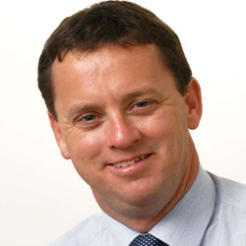School-aged children who take part in some form of social action are significantly more likely to volunteer their time later on in life, according to a new report.
According to data released in the Evaluating Youth Social Action interim report, of the 3,628 students surveyed, those who took part in a social action project were, on average, 10 per cent more likely to volunteer again later in life. Conversely the students who volunteered seemed less likely to donate money, according to the report.
The process of compiling the report began in 2013 when the Cabinet Office Centre for Social Action and the Education Endowment Foundation invited applications from organisations working with young people across Birmingham, Kent, Middlesbrough and Lancashire for a £5m fund. Of the 28 organisations which received funding, three were chosen for the study: Citizenship Foundation (CF), Envision and Voluntary Action Within Kent.
Children from the regions who signed up for the scheme were divided into ‘treatment’ groups (those who took part in social action) and ‘control’ groups (those who did not). Both sets of children were given surveys and answered questions before and after the programmes begun and their answers were collated and then compared after.
Future for social action findings
In an attempt to quantify whether children who took part in social action would be more inclined to do so in later life, both control and treatment groups across the programmes were asked whether they “had a greater willingness” to help those in their own communities, as well as whether they’d like to learn more about volunteering to help communities outside theirs.
Across the programmes, children who took part in social action were statistically far more likely to volunteer in the future, be that in their communities or outside.
Some 65 per cent of pupils participating in the CF programme said they would be willing to volunteer in the future in their own communities, 10 per cent more than their peers in the control group.
Those on the Envision programme were even more likely to volunteer in the future, with 78 per cent saying they would willingly volunteer again in the future compared to around half of the control.
Of the children who took part in Voluntary Action Within Kent's programme 42 per cent were willinging to volunteer within their communities in the future compared to 28 per cent in the control group.
Propensity to donate
All the children taking part in social action programmes and those who did not were given four 50p coins and asked to decide how many to keep for themselves and how many to donate.
The study found that those who had taken part in a social action programme gave a total of 16 per cent less than those who had not taken part in a programme.
According to the report this could be down to a "licensing effect" for those who felt they had already contributed to society.
Rob Wilson, minister for civil society, said: “This research, commissioned by the Cabinet Office, clearly shows that the government’s commitment to youth social action is equipping young people with the skills they need to compete with the best and the brightest in the world."
The report concludes that while its findings are “promising”, it says that more work needs to be done on the subject. “It is important to continue collecting data so that the longer-term outcomes of youth social action are known.”
For its part the Cabinet Office has also released a discussion paper concering social action in the wider community.








